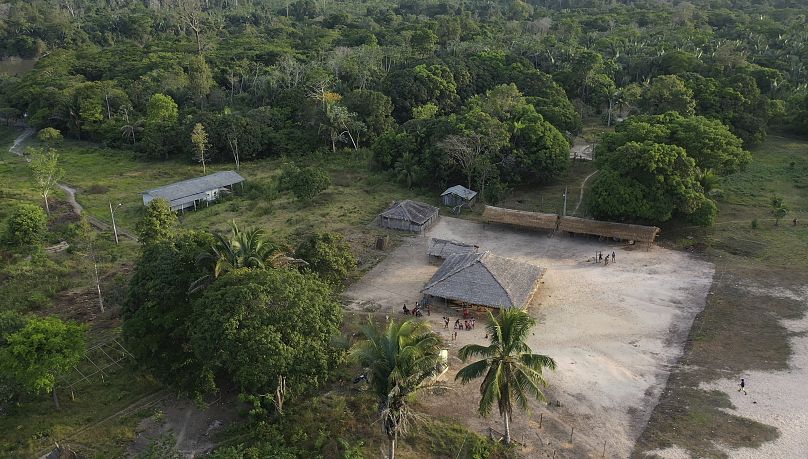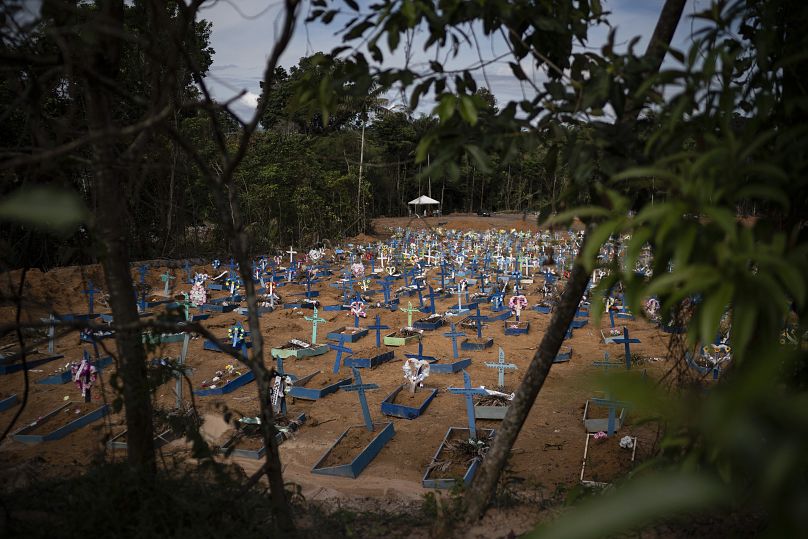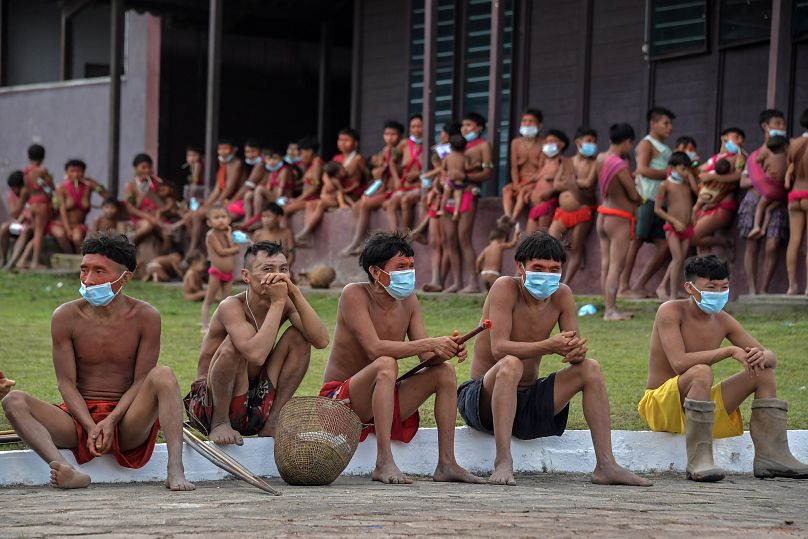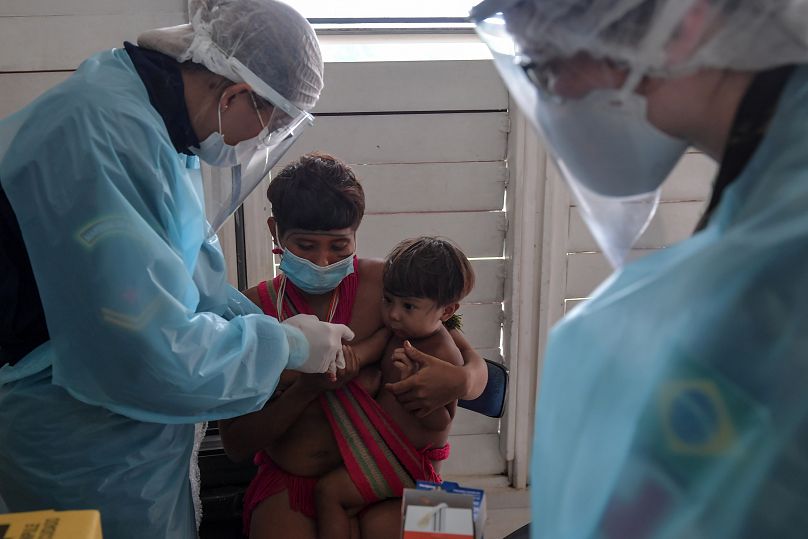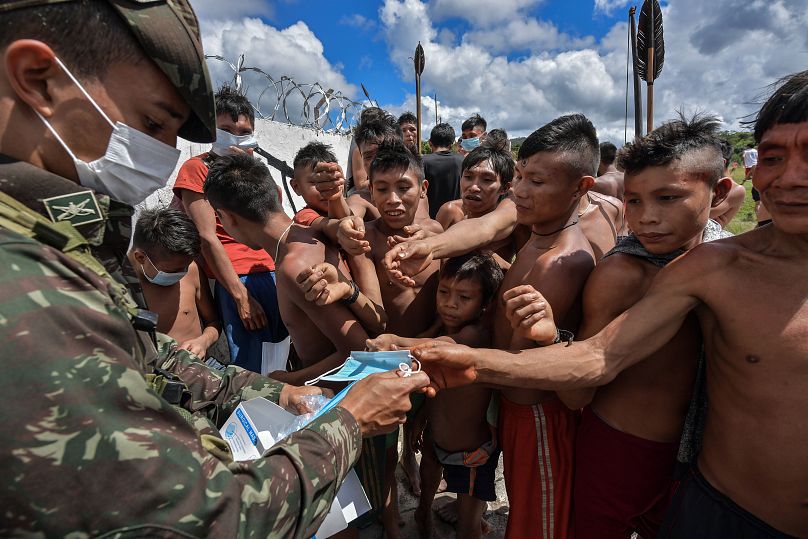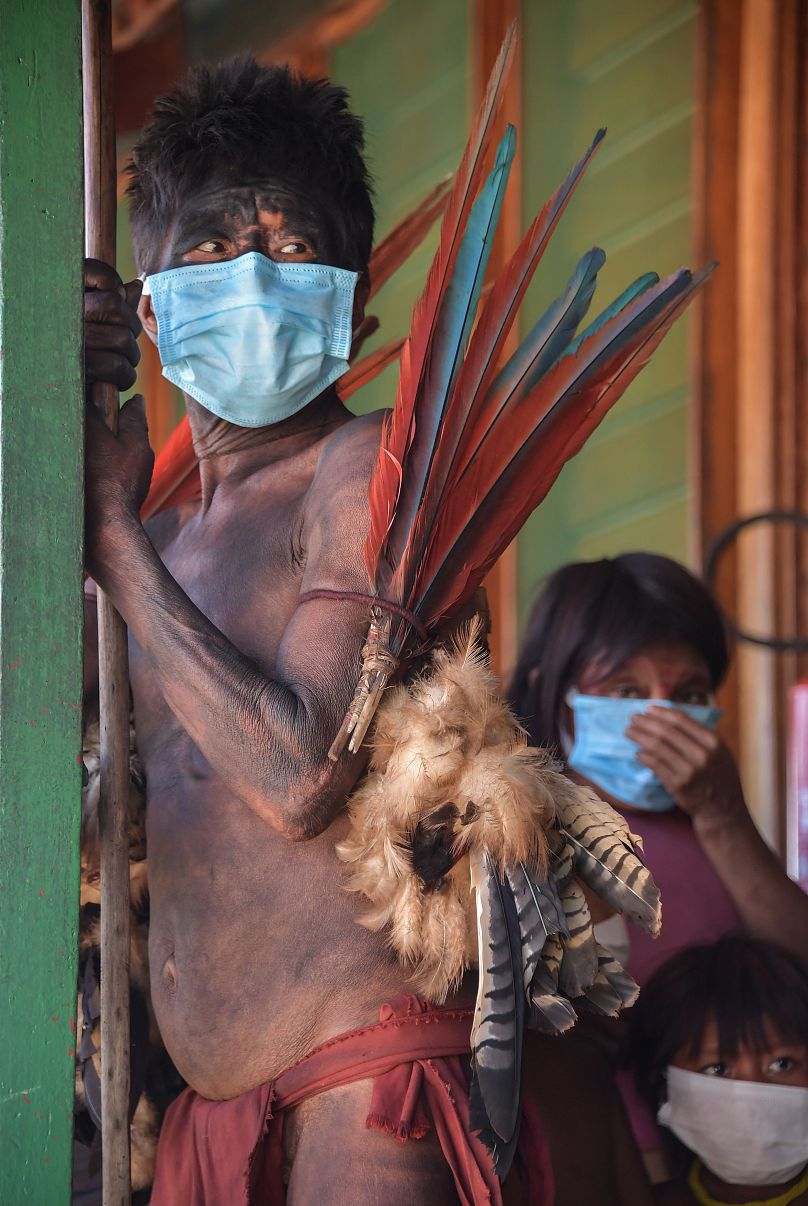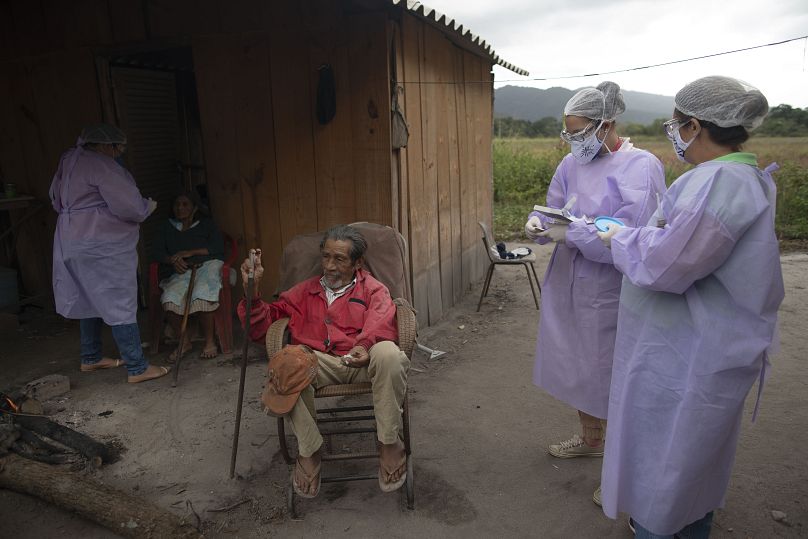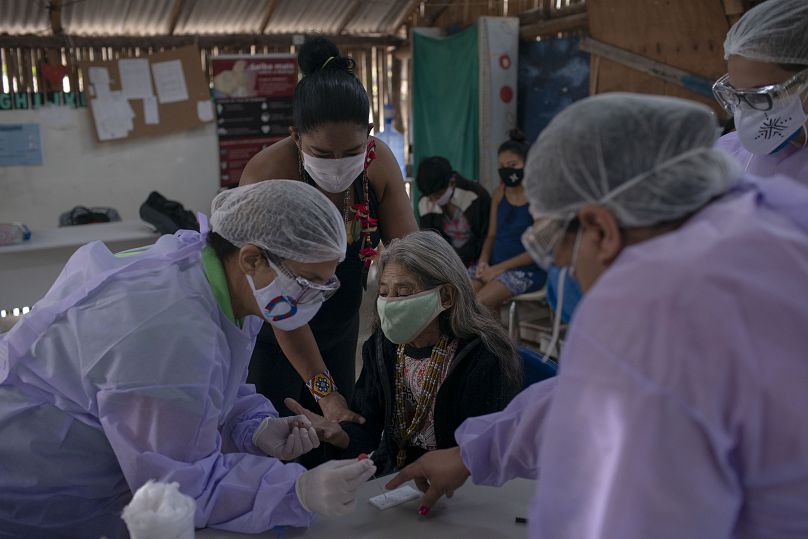The deadly coronavirus is spreading across the protected lands of indigenous people, who blame illegal miners, other intruders and the Brazilian state.
Indigenous tribes in Brazil should be safer than the rest of the population in the country hit very hard by the COVID-19 pandemic, as their lands are supposed to be protected from unauthorised entries.
Instead, the coronavirus is dangerously spreading across their territories. According to the Secretariat of Indigenous Health, more than 8,000 indigenous people living in villages have developed COVID-19 and 184 have died as a result.
Indigenous people and rights activists accuse the government of an incompetent response and state authorities of a lack of desire to protect the native population from the deadly coronavirus. The Illegal miners that regularly invade the protected territories, and health-care workers sent by the government, are being blamed as the main source of infection.
In the spring, tribes tried for weeks to seal off their reserves from the virus, asking for donations and waiting for the government to deliver food assistance so they could remain isolated. Indigenous advocates said it didn't come for many.
The leaders of the native population asked the state to adopt urgent measures to guard its people against the devastating consequences of this crisis, the scale of which is hard to predict.
Nevertheless, on Wednesday President Bolsonaro vetoed laws that would have obliged the government to provide indigenous people with access to clean water, specially reserved intensive care beds amid the pandemic, and free distribution of basic necessities. The initiative would result in additional expenditure which is "contrary to the public interest", the president argues.
The Socio-Environmental Institute, a non-government organisation specialising in environmental and social issues, called this decision by the head of state "criminal".
Earlier, at the beginning of this month, the Brazilian prosecutor’s office opened an investigation into possible endangerment of Yanomami and Yekwana people in the northern state of Roraima, during a military health workers' mission on June 30 and July 1.
In the presence of around 20 journalists, including AFP, they conducted tests and distributed masks, which could have been carried out without prior authorisation from the indigenous people and in violation of the rules on physical distancing. AFP assures that its journalists had been tested shortly before the mission and took all the necessary precautions.
The president of the Yanomami Indigenous Health Council Junio Yanomami, who filed the complaint, said the tribe could have been exposed to Covid-19 during the mission. As he explained to the prosecutor, the Isolated indigenous people are extremely vulnerable to external pathogens, which is why contact by the mission could be considered a crime against public health.
He also expressed concern about the distribution of chloroquine tablets during the mission, as they have never been proven to be effective against coronavirus, he said. Chloroquine, persistently promoted by the far-right president Jair Bolsonaro, who also has caught the coronavirus, is however recommended by the Brazilian health ministry.
Brazil’s defence minister Fernando Azevedo, who was observing the mission of military doctors to the protected territories, said that the spread of the pandemic among the indigenous communities was under control.
Brazil, with its population of 212 million, is the second most affected country in the world. Almost 1.7 million people have been infected with the coronavirus and there have been 68,000 deaths.












